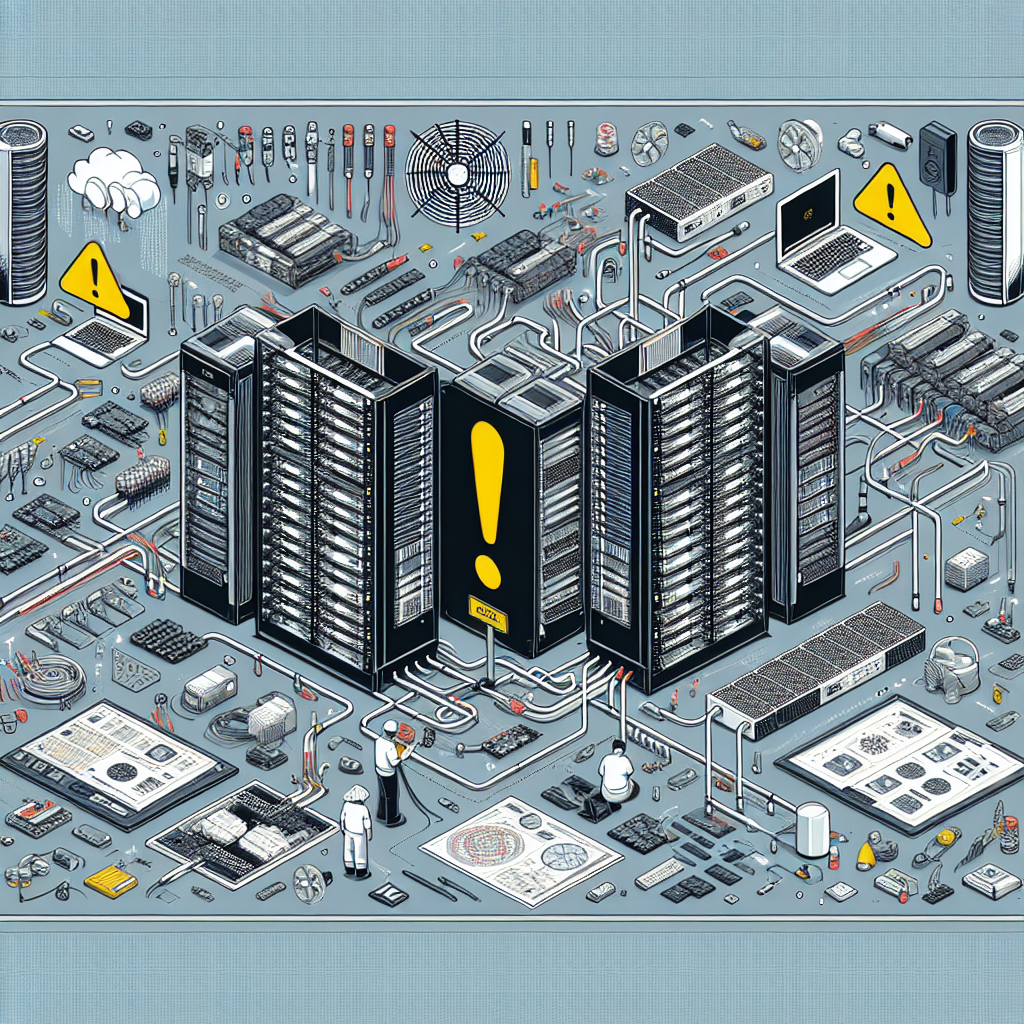Your cart is currently empty!
Troubleshooting Data Center Hardware Failures: Common Causes and Solutions

Data centers play a crucial role in the functioning of modern businesses, providing a secure and reliable environment for storing and managing data. However, even the most well-maintained data centers can experience hardware failures, which can lead to downtime and potential data loss. In order to minimize the impact of hardware failures, it is important for data center administrators to be able to quickly identify the causes of these failures and implement appropriate solutions.
There are a number of common causes of hardware failures in data centers, including:
1. Overheating: Data centers generate a significant amount of heat due to the large number of servers and networking equipment housed in a relatively small space. If the cooling systems in a data center are not functioning properly, this heat can build up and cause hardware components to fail. To prevent overheating, data center administrators should regularly check and maintain the cooling systems, ensure proper airflow within the data center, and monitor temperature levels.
2. Power surges: Power surges can occur when there are fluctuations in the electrical supply to a data center, which can damage hardware components such as servers, storage devices, and networking equipment. To protect against power surges, data center administrators should invest in surge protectors, uninterruptible power supplies (UPS), and backup generators.
3. Hardware malfunctions: Hardware components such as hard drives, memory modules, and processors can fail due to wear and tear, manufacturing defects, or physical damage. To identify and address hardware malfunctions, data center administrators should regularly monitor the performance of hardware components, conduct diagnostic tests, and replace faulty components as needed.
4. Software conflicts: In some cases, hardware failures in data centers can be caused by conflicts between software applications and hardware components. To prevent software conflicts, data center administrators should ensure that all software applications are compatible with the hardware components in the data center, and regularly update software to address any known issues.
When a hardware failure occurs in a data center, it is important for administrators to act quickly to minimize downtime and prevent data loss. Some common solutions to hardware failures in data centers include:
1. Isolating the problem: When a hardware failure occurs, data center administrators should first identify the affected hardware component and isolate it from the rest of the system to prevent further damage.
2. Rebooting the system: In some cases, a simple reboot of the affected hardware component or the entire system can resolve hardware failures caused by software conflicts or temporary glitches.
3. Replacing faulty hardware: If a hardware component is found to be faulty, data center administrators should replace it with a new component to restore the functionality of the system.
4. Implementing preventative measures: To prevent future hardware failures, data center administrators should regularly maintain and monitor hardware components, invest in backup systems and redundant hardware, and implement best practices for data center management.
By understanding the common causes of hardware failures in data centers and implementing appropriate solutions, data center administrators can ensure the reliability and availability of their data center infrastructure. By taking proactive measures to prevent hardware failures and responding quickly to incidents when they occur, businesses can minimize downtime, protect their data, and maintain the productivity of their operations.

Leave a Reply